July 2009 in “International Journal of Cosmetic Science” Japanese women's curved hair has an uneven internal structure and varied amino acid composition.
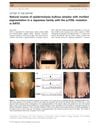 3 citations,
January 2019 in “Journal of Dermatology”
3 citations,
January 2019 in “Journal of Dermatology” The p.P25L mutation in the KRT5 gene causes a rare skin condition that worsens over time and may lead to hair loss starting in young adulthood.
 2 citations,
May 2017 in “The Journal of Dermatology”
2 citations,
May 2017 in “The Journal of Dermatology” A Japanese bone marrow transplant patient developed a rare skin cancer possibly linked to long-term use of the medication voriconazole.
 January 2006 in “Journal of Rural Medicine”
January 2006 in “Journal of Rural Medicine” Trichotillomania is more common than previously thought, with increasing diagnosed cases.
 July 1996 in “Hair transplant forum international”
July 1996 in “Hair transplant forum international” The Japanese Society of Hair Restoration Surgery's annual meeting shared new hair restoration techniques.
 September 1995 in “Hair transplant forum international”
September 1995 in “Hair transplant forum international” The document's conclusion cannot be summarized because the content is not accessible or understandable.
62 citations,
December 2008 in “Journal of structural biology” Hair curvature in Japanese people is linked to specific cell types and filament arrangements in the hair cortex.
 25 citations,
June 2003 in “Journal of Investigative Dermatology Symposium Proceedings”
25 citations,
June 2003 in “Journal of Investigative Dermatology Symposium Proceedings” Phototrichogram and hair diameter measurements are effective, noninvasive ways to assess hair growth and detect early hair loss, with the most common pattern being reduced hair density.
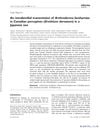 14 citations,
January 2008 in “Medical mycology”
14 citations,
January 2008 in “Medical mycology” Canadian porcupines in a Japanese zoo passed a skin fungus to each other.
 11 citations,
February 2011 in “Current Zoology”
11 citations,
February 2011 in “Current Zoology” About 20% of Japanese macaques had head alopecia, and stress and environment might cause hair loss.
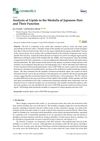 7 citations,
April 2018 in “Cosmetics”
7 citations,
April 2018 in “Cosmetics” Lipids in Japanese hair help maintain glossiness and structure.
 4 citations,
January 2013 in “European Journal of Dermatology”
4 citations,
January 2013 in “European Journal of Dermatology” Epigenetic differences affect hair loss in identical Japanese male twins.
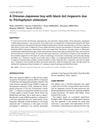 4 citations,
March 2006 in “Journal of dermatology”
4 citations,
March 2006 in “Journal of dermatology” A Chinese-Japanese boy had a rare fungal infection on his scalp and skin, likely caught in China.
 3 citations,
March 2016 in “Journal of Cosmetic Dermatology”
3 citations,
March 2016 in “Journal of Cosmetic Dermatology” GPIGS peptide increases thick hair growth in balding Japanese men.
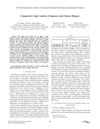
Chinese and Japanese bloggers discuss different topics and have varying opinions, reflecting cultural differences.
 February 2023 in “Journal of dermatology”
February 2023 in “Journal of dermatology” The first Japanese case of a genetic hair disorder caused by specific mutations in the LIPH gene was identified.
 May 2018 in “European Journal of Dermatology”
May 2018 in “European Journal of Dermatology” The first Japanese family with Marie Unna hereditary hypotrichosis showed hair condition improvement in a child and highlighted the risk of misdiagnosis.
 September 2016 in “Journal of Dermatological Science”
September 2016 in “Journal of Dermatological Science” Certain gene mutations in Japanese people are linked to different types of hair loss, with some causing mild hair thinning and others leading to complete baldness.
 September 1998 in “Hair transplant forum international”
September 1998 in “Hair transplant forum international” The document's content cannot be summarized because it is not accessible or understandable.
 58 citations,
June 2018 in “Scientific reports”
58 citations,
June 2018 in “Scientific reports” Researchers found 15 new genetic links to skin traits in Japanese women.
12 citations,
March 2012 in “JEADV. Journal of the European Academy of Dermatology and Venereology/Journal of the European Academy of Dermatology and Venereology” A specific gene mutation in Japanese people can cause varying degrees of hair thinning in adulthood.
 12 citations,
August 2004 in “PubMed”
12 citations,
August 2004 in “PubMed” Finasteride, especially in a 1mg dose, effectively slows hair loss and improves hair growth in Japanese men with male pattern hair loss.
 11 citations,
April 2015 in “International Journal of Cosmetic Science”
11 citations,
April 2015 in “International Journal of Cosmetic Science” Adenosine helps grow thicker hair in Japanese men with hair loss.
6 citations,
January 1999 in “Dermatology” Alopecia areata is linked to autoimmune antibodies.
3 citations,
November 2021 in “Frontiers in medicine” Methotrexate effectively controls eye inflammation in Japanese patients with non-infectious uveitis but requires careful monitoring for side effects.
1 citations,
January 1999 in “Dermatology” July 2020 in “International Journal of Cosmetic Science” The study found that minor protein differences between curved and straight Japanese hair are unlikely to significantly affect hair structure.
72 citations,
March 2013 in “Primates” More research is needed to understand how diet affects isotope signatures in Japanese macaque tissues.
 70 citations,
July 2020 in “Pharmacological Reports”
70 citations,
July 2020 in “Pharmacological Reports” Cepharanthine, a Japanese hair loss drug, shows promise as a COVID-19 treatment but needs more testing.
 33 citations,
December 2008 in “Journal of Dermatology”
33 citations,
December 2008 in “Journal of Dermatology” Adenosine lotion improves hair growth and thickness in women with hair loss.





















